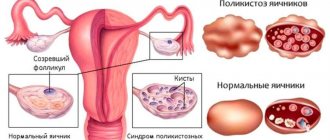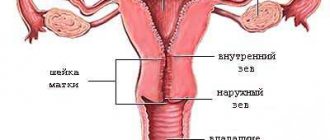The most effective method is the installation of an IUD, and if you choose it, you should keep in mind that this method has many contraindications that you need to familiarize yourself with before the procedure. These include: pregnancy, vaginal bleeding, pelvic inflammatory diseases, allergic reactions to copper, tuberculosis, severe anemia, etc.
There are no contraindications when taking emergency contraceptive pills, but it should be remembered that frequent use of these drugs can negatively affect a woman’s health, so it is better to give preference to permanent contraception.
It is advisable to consult a doctor before taking it. If for some reason this is not possible, then self-administration of medications is allowed. The most effective drugs today are:
- Escapelle. It is recommended to take it within 96 hours after unprotected intercourse;
- Postinor. It is effective for 72 hours.
Both of these drugs prevent the egg from implanting inside the uterus. Possible side effects:
- nausea;
- vomit;
- vaginal bleeding;
- increased fatigue.
If vomiting occurs after using the drug, the dose should be repeated, but you should not specifically take antiemetics. Usually, the side effects from emergency contraceptive pills are mild and go away without additional treatment, but to avoid possible risks, you should consult a doctor.
Ayla Kadyrova, obstetrician-gynecologist:
“In fact, the side effects of these drugs are not that strong. This is mainly bleeding, nausea and vomiting. If such side effects suddenly occur, the drug should be replaced. But, since they are prescribed by a doctor, the selection of emergency contraception occurs individually.”
Types of postcoital contraceptives
Tablets that prevent unwanted pregnancy are produced based on two active ingredients:
- levonorgestrel is a hormonal substance from the group of gestagens, an analogue of progesterone;
- Mifepristone is a steroidal antiprogestogen substance.
These components differ in their mechanism of action. Levonorgestrel is a substance that acts similarly to endogenous progesterone, but has an anti-estrogenic effect. If taken before ovulation, it inhibits ovulation by suppressing the release of pituitary hormones LH and FSH. The egg does not mature, fertilization becomes impossible.
If you take birth control within 72 hours of ovulation, your risk of getting pregnant is higher. But levonorgestrel causes thickening of the cervical mucus, leading to changes in the endometrium that do not allow the embryo to implant.
The mechanism of action of mifepristone is different. It has an antiprogestagenic effect and blocks progesterone receptors in the endometrium. This increases the contractility of the myometrium. At the same time, there is an increase in the synthesis of prostaglandins, which increase the lumen of the cervical canal and also increase contractions of the muscle cells of the uterus. The fertilized egg cannot implant and leaves the organ cavity.
Copper intrauterine devices
WHO recommends a copper IUD as an emergency contraceptive, to be inserted within five days after unprotected intercourse. This method is especially suitable for women who want to start using a highly effective and long-term reversible method of contraception.
Efficiency
When inserted within 120 hours of unprotected sex, a copper-containing IUD is more than 99 percent effective in preventing pregnancy. This is the most effective form of emergency contraception available. After its insertion, a woman can continue to use a copper-containing IUD as a permanent method of contraception or switch to another contraceptive method at her discretion.
Safety
A copper IUD is a safe form of emergency contraception. It is estimated that pelvic inflammatory disease (PID) may occur in fewer than two in 1000 users (3). (See Family Planning Guide). The risks of tissue perforation or coil expulsion are low.
Medical eligibility criteria
For emergency use of a copper-containing IUD, the same criteria apply as for permanent use. Women with medical conditions that fall within category 3 or 4 of the medical eligibility criteria for copper-containing IUDs (such as untreated pelvic inflammatory disease of infectious origin, puerperal sepsis, unexplained vaginal bleeding, cervical cancer, or severe thrombocytopenia) should not use them. for emergency purposes. In addition, a copper IUD should not be inserted for emergency contraception after sexual assault because the woman may be at significant risk for sexually transmitted infections such as chlamydia and gonorrhea. A copper-containing IUD should not be used for emergency contraception when a woman is already pregnant.
As noted in the Medical Eligibility Criteria for Contraceptive Use, insertion of an IUD may further increase the risk of PID among women at increased risk of sexually transmitted infections (STIs), although limited evidence suggests that this risk is low. Current algorithms for identifying increased risk of STIs have insufficient predictive value. The risk of STIs varies depending on individual behavior and the local prevalence of these infections. Thus, although many women who are at increased risk for STIs can generally have an IUD inserted, some women who are at increased risk for STIs should not have an IUD inserted until appropriate testing and treatment has been performed.
- Medical Eligibility Criteria for the Use of Contraceptive Methods - in English
Review of emergency contraceptives 72 hours
The pills, which are used to prevent conception after sexual intercourse, can be purchased without a doctor's prescription. They can be used by women of fertile age over 18 years of age. Such hormonal drugs are not recommended for adolescents.
№1 Postinor
A progestogen drug for immediate protection, which includes a single dose of 0.75 mg levonorgestrel. The Postinor blister contains 2 tablets, which are divided into 2 doses . You can take the entire dose at one time if the woman is in the middle of her menstrual cycle and there is no high probability of ovulation within a few hours after sex. The cost of a pack is 310-342 rubles.
No. 2 Escapelle
The drug Escapel contains the active ingredient levonogrestrel, but in an increased dose of 1.5 mg. For contraception, one tablet is taken, which cannot be divided or crushed. Repeated administration of the medicine is required only in case of vomiting in the next 2-3 hours. Price 382-406 rub.
Attention! A large dosage of the hormone increases the likelihood of adverse reactions. Levonorgestrel in such quantities may exhibit weak androgenic properties.
No. 3 Genale
Zhenale birth control pills are based on mifepristone. A single dose is 10 mg. It is enough to increase myometrial contractility and prevent implantation of the fertilized egg. But as the dose increases, the risk of adverse reactions increases. To terminate pregnancy, analogues of Zhenale are used, but with a concentration of the active substance 60 times higher. The average price of emergency contraception is 450 rubles.
No. 4 Eskinor-F
The package contains 2 tablets based on levonogrestrel. It is recommended to use them no more than once during the cycle. But emergency contraception does not replace the subsequent use of condoms.
Eskinor-F, like other drugs in its group, can cause intermenstrual bleeding and cycle disruption. Therefore, it is better to resort to this method of protection against pregnancy as a last resort. The cost of tablets is on average 350 rubles.
No. 5 Gynepriston
Tablets with mifepristone in a dosage of 0.01 g. Prevent implantation of the embryo into the uterine wall.
It is recommended to take them 2 hours before meals or 2 hours before meals to increase the contraceptive effect. The package can contain 1 or 2 tablets. Women who have had more than 24 hours after unprotected sex, or who are in the middle of their menstrual cycle, should take a double dose.
No. 6 Modell 911
Levonorgestrel tablet at a dose of 1.5 mg, the package contains 1 piece. Research shows that this drug is highly effective and helps prevent pregnancy in 84% of cases. If you use 2 tablets of 0.75 mg with an interval of 12 hours, the chances of not getting pregnant are reduced to 79%. The cost of packaging is about 400 rubles.
Emergency contraception and termination of pregnancy. What is the difference?
Emergency contraception is a way to avoid pregnancy during ovulation and fertilization. Thus, such drugs suppress ovulation and prevent the germ cells from uniting or prevent the fertilized egg from attaching to the uterus. It takes approximately 3 days for the egg to travel to the uterus. The same amount is needed to attach to its walls. This is why it is not advisable to use emergency measures after the 6-day period. In this case, termination of pregnancy will be required.
Rules for using birth control pills 72 hours
To avoid getting pregnant, you need to take the pill within 72 hours after sexual intercourse. The first is drunk as early as possible, the second - 12 hours after the first. The sooner the first dose is taken, the more likely it is that it will have time to work. In some cases, it is possible to take 2 tablets at the same time. If vomiting occurs after 3 hours, a repeat dose must be taken .
The time limit for using the pills is strictly specified; it is useless to use contraceptives within a week after sexual intercourse. After 72 hours, the contraceptive effect disappears, because the embryo manages to exit into the uterine cavity.
Recommendations for use do not differ from the active ingredient of the drug: the dosage regimen is the same for levonorgestrel and mifepristone.
Features of use during lactation
Rapid-acting emergency contraceptives are well tolerated by nursing mothers even in the absence of menstruation. Both drugs pass into breast milk but have different rates of metabolism. You can continue breastfeeding after taking levonorgestrel-based tomorrow pills after 24 hours, expressing milk during this time. Those who have used mifepristone should abstain for 14 days. Therefore, levonorgestrel-based drugs are recommended for nursing mothers.
Transition to permanent contraception
After using ECPs, a woman or girl can return to or start using a permanent method of contraception. If a copper-containing IUD is used for emergency contraception, then additional contraceptive protection is not required.
After taking levonorgestrel-containing ECPs (LNG) or combined oral contraceptive pills (COCs), women or girls can resume their current method of contraception or start using a method, including a copper-containing IUD.
After using ECPs with ulipristal acetate (UPA), women or girls can continue or start using any progestogen-containing product (combined hormonal contraception or progestogen-only contraceptives) on the sixth day after taking UPA. They can immediately receive an IUD with LNG if it can be established that they are not pregnant. They can immediately receive a copper-containing IUD.
In what cases should you not use 72 hour tablets?
The main indication for using 72-hour birth control pills is to prevent pregnancy. They are not suitable for abortion; contraceptives cannot cause an abortion after implantation of the embryo. Contraceptives with levonorgestrel are contraindicated for:
- pregnancy;
- allergies to any component of the drug;
- severe liver failure;
- some hereditary diseases associated with lactase deficiency;
- malabsorption syndrome.
Mifepristone should not be used in the following conditions:
- early ectopic pregnancy;
- long-term treatment with corticosteroids;
- bleeding from the vagina;
- anemia and blood clotting pathology.
Can be used with caution for bronchial asthma, hypertension and heart failure.
Emergency contraception procedure at Diamed clinics
Our clinic specialists will help you avoid the dangerous consequences of emergency contraception. Here you can take all the necessary tests, including a blood test for hCG. An experienced doctor will examine you, prescribe the drug and explain how to take it correctly.
In addition, experienced doctors will monitor after treatment and help you choose the optimal method of planned contraception. The guarantee of contraception in Diamed clinics is truly one hundred percent, because the prescription of drugs here is carried out by professionals who have extensive experience in the field of gynecology.
Adverse reactions
Pills to terminate a possible pregnancy within 72 hours can be harmful even if the dosage is followed. Possible adverse reactions may include:
- uterine bleeding;
- aching pain in the lower abdomen;
- headache;
- bowel dysfunction, nausea;
- dysmenorrhea, delayed menstruation.
It is not recommended to combine contraceptives with alcohol and other hormonal drugs, as well as some antibiotics.
Who should definitely stop taking these medications?
— These tablets should definitely not be taken by women with a history of thromboembolism, severe liver disease, bleeding of unknown etiology, breast and endometrial cancer. Other indications and contraindications for use based on individual health conditions should be discussed with your doctor. I repeat once again that each method has its own pros and cons. For example, in women over 35 years of age, taking medications with ethinyl estradiol (synthetic estrogen) increases the risk of developing thromboembolic complications.









